This article has multiple issues. Please help improve it or discuss these issues on the talk page . (Learn how and when to remove these template messages)
|
Carla L. Benson is an American vocalist known for her recorded background vocals.
This article has multiple issues. Please help improve it or discuss these issues on the talk page . (Learn how and when to remove these template messages)
|
Carla L. Benson is an American vocalist known for her recorded background vocals.
Carla L. Benson grew up in South Jersey with her mother and two brothers. Eventually, her family grew to include a stepfather and younger sister.
Benson studied dance at Sidney King School of Dance in Camden from ages 4–12. She attended Pyne Point Junior High School where she joined the Walter Young Choral Ensemble. In 1968, they earned an appearance on the Ted Mack Amateur Hour in New York City.[ citation needed ]
She graduated from Camden High School in 1971, and took classes at Glassboro State College, later named Rowan University, before eventually finishing her Bachelor of Arts in music in 1999. [1]
Benson began her professional career singing with her cousin Barbara, who died unexpectedly in 1994, and Evette L. Benton, her best friend from childhood and later college roommate. After auditioning for Thom Bell they became the in-house background vocalists for Philadelphia International Records for over 10 years. [2] They vigorously resisted any group name, but eventually were named "The Sweethearts of Sigma" for the famous Sigma Sound Studios where they did the majority of their work, by mix master Tom Moulton.
They never signed an exclusive contract, making them free to work as independent contractors. As a result, they appeared on many projects outside the Philadelphia International stable. They can be heard on hundreds of hits, including Billy Paul's "Me and Mrs. Jones", The Spinners' "I'll Be Around", McFadden and Whitehead's "Ain't No Stoppin' Us Now", Evelyn "Champagne" King's "Shame", Patti LaBelle's "New Attitude" and "If Only You Knew", Lou Rawls' "You'll Never Find Another Love Like Mine" and Patti LaBelle and Michael McDonald's "On My Own" to name a few. [3]
During the Disco era, The Sweethearts were heavily sought after for their vocals. Confidentiality agreements prevented the Sweethearts from being credited as the vocalists for several major disco hits. The trios also worked as named and unnamed background vocalists for studio orchestras MFSB, The Salsoul Orchestra, The Original Ritchie Family, and John Davis' Monster Orchestra. They also provided background vocals for Grace Jones, The Trammps, the Village People, Gloria Gaynor, Loleatta Holloway, France Joli, and hundreds of other successful disco acts. After the runaway success of Saturday Night Fever, even John Travolta tried his hand at recording and insisted on the vocal assistance of the famed Sweethearts. (Credits at Discogs.com/CarlaL.Benson)
With the sudden decline of disco, work dried up and The Sweethearts decided to break up. Benson was approached to produce the annual fundraising event for The Dr. Charles Henderson Auxiliary, the only African American auxiliary of the Cooper University Hospital in her native Camden, New Jersey. She wrote and directed an ensemble cast, produced, and performed in her creation, which she named "Rhapsody in Black". That year, the auxiliary exceeded its own expectations and was able to make its largest donation to the hospital in their history. That record still stands today.
Benson won lead roles in two productions of Ain't Misbehavin' at The Riverfront Dinner Theater in Philadelphia, Pennsylvania.
The Sweethearts had previously recorded the background vocals for Patti LaBelle's "If Only You Knew", "Love, Need, and Want", and a few others. In the mid-80s, when LaBelle wanted new background vocalists, she wondered if "The Girls" would be interested. The Sweethearts quickly came back together and toured exclusively with LaBelle, who renamed them "The Sweeties." LaBelle fondly referred to Benson as "Sweetie Number One". [4] It was during their tenure with LaBelle that they recorded the soundtrack for Beverly Hills Cop and did the popular video "Stir It Up". LaBelle received her first platinum album, Winner in You, on which the Sweeties performed. She graciously orchestrated the moment when the Sweeties received their platinum albums during an on-air interview on the popular television show People Are Talking with Richard Bey in 1987.
During her down times off the road, Carla Benson worked as a substitute teacher for the Camden School system, where her love of inner-city teenagers began to take root and grow.
In 1988, Benson opened in the main room of the Claridge Hotel and Casino in November, which LaBelle attended and sang at. Benson spent the next two years performing exclusively at the Trump Casino's special events, and the Claridge Casin o.
When the casinos closed many of their lounges, Benson sang for over fifteen years with a wedding band, The Franklin Alison Orchestra, out of Princeton, New Jersey.
Tony Award-winning writer Joseph A. Walker (The River Niger) was hired to produce a series of musicals for Rutgers University. Under his direction, Benson starred in productions of Dreamgirls , The Amen Corner , Buddy Bolden and Raisin. Before his death, he was writing another musical, especially for her, which he hoped to have produced on Broadway.
Walker's musical director, Tony Booker, was instrumental in Benson being signed to a five-year contract at the Kennedy Center for the Performing Arts in Washington, D.C., where she was featured in their annual production of Black Nativity , under the direction of the founder of the Duke Ellington School of Performing Arts, Mike Malone. She also had a lead role in a developing work written and directed by Tony Award-winning choreographer George Faison.
In 1996, Benson graduated at the top of her class from the Technical Institute of New Jersey, Pennsauken Campus as a certified paralegal. She began work as an executive legal secretary in arbitration for Judge Vogelson at the Hall of Justice in Camden.
In 1999, she graduated with a Bachelor of Arts degree in Vocal Music from Rowan University.
Benson worked as a Permanent Substitute at Camden High School.
In 2000, Benson was approached by her friend, Allan Slutsky, to participate in a film that would highlight the studio musicians of Motown, who were called "The Funk Brothers". Being a studio musician herself, this project held a particular appeal for her. Slutsky knew of Benson's professional recording career and hired her to be section leader for the background vocals for the film. Benson hired her cousin Johnny Ingram to go with her, and they traveled with her brother Keith, associate producer for the film, to Detroit, Michigan for two weeks of rehearsals and filming. She worked with artists like Gerald LeVert, whose father she'd previously worked with as a member of the O'Jays; Chaka Khan; Bootsy Collins; Ben Harper; Joan Osborne; Tom Scott; and the Funk Brothers themselves. The project, called Standing in the Shadows of Motown , became an award-winning documentary, and went on to win three Grammy Awards.
Encouraged by her mother to return to music, Benson toured the world with the infamous Funk Brothers for about three years. Due to the advanced ages of the Funk Brothers, the touring schedule was very sporadic, leaving big chunks of downtime.
Also during this time, writer John A. Jackson approached Benson for an interview in his upcoming book, A House on Fire, the Rise and Fall of Philadelphia Soul, which was released in 2005. Benson is credited with the opening quote and is quoted extensively throughout the book.
In 2001, Dr. Stephanie Branch offered her a position as a music teacher at the Charles E. Brimm Medical Arts High School in Camden. Benson She said, "My children need to know more than do-re-mi. They need to know they are valuable. They need to know life skills such as the importance of voting and the absolute necessity of being able to read and they must, must reconnect with their dreams and goals. I can help them do all of that, through MUSIC as I teach it." [5]
Dr. Branch thought it was a plus to have a music teacher who was also a performing musician, as long as her absences were not too long in duration or frequency. After two years, Dr. Branch left to further her career and Benson was forced out. [6] She attended classes at the Women's Opportunity Resource Center in Philadelphia to complete her business plan, and her "Awakenings, Inc." was born. [7]
Benson continues to perform and has released two new original projects, a single called "Welcome" and a full CD entitled You Should Be Here. In November 2014, she directed and produced a Christmas video for Youtube with an all Camden, New Jersey cast, entitled "Voices of Camden, Featuring Carla Benson". [8]
She continues to seek funding for her "Awakenings" after-school program aimed at inner-city, at-risk high school youth. [9]
Carla appears in the documentary "Standing in the Shadows of Motown", written by Allan Slutsky. This film won three Grammy Awards. [10]
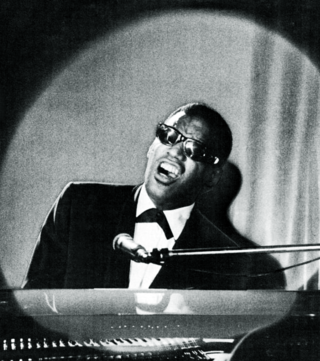
Soul music is a popular music genre that originated in the African American community throughout the United States in the late 1950s and early 1960s. It has its roots in African-American gospel music and rhythm and blues. Soul music became popular for dancing and listening, where U.S. record labels such as Motown, Atlantic and Stax were influential during the Civil Rights Movement. Soul also became popular around the world, directly influencing rock music and the music of Africa. It also had a resurgence with artists like Erykah Badu under the genre neo-soul.

Labelle was an American funk rock band that originated out of the Blue Belles, a girl group who were a popular vocal group of the 1960s and 1970s. The original group was formed after the disbanding of two rival girl groups in the area around Philadelphia, in Pennsylvania, and Trenton, in New Jersey: the Ordettes and the Del-Capris, forming as a new version of the former group, then later changing their name to the Blue Belles. The founding members were Patti LaBelle, Cindy Birdsong, Nona Hendryx, and Sarah Dash.

Patricia Louise Holt, known professionally as Patti LaBelle, is an American R&B singer and actress. She has been referred to as the "Godmother of Soul".

Nona Bernis Hendryx is an American vocalist, record producer, songwriter, musician, and author. Hendryx is known for her work as a solo artist as well as for being one-third of the trio Labelle, who had a hit with "Lady Marmalade". In 1977, Hendryx released her self-titled debut solo album, a commercial failure that resulted in Hendryx being released from her recording contract. In the early 1980s, Hendryx sang with experimental funk group Material, achieving the hit "Busting Out".
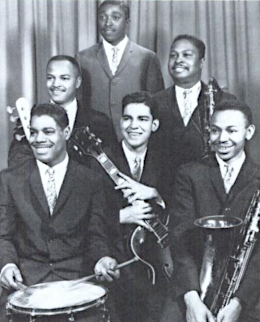
The Funk Brothers were a group of Detroit-based session musicians who performed the backing to most Motown recordings from 1959 until the company moved to Los Angeles in 1972.

Cynthia Ann Birdsong is a retired American singer who became famous as a member of The Supremes in 1967, when she replaced co-founding member Florence Ballard. Birdsong had previously been a member of Patti LaBelle & The Bluebells.
Pamela Williams is an American smooth jazz saxophonist. Her music employs nu Jazz, funk, R&B, house, Latin and pop.
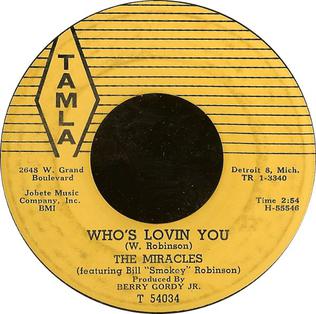
"Who's Lovin' You" is a Motown soul song, written in 1960 by William "Smokey" Robinson. The song has been recorded by many different artists including The Miracles, who recorded the 1960 original version, The Temptations, The Supremes, Terence Trent D'arby, Brenda and The Tabulations, John Farnham, Human Nature, En Vogue, Michael Bublé and Giorgia Todrani and Jessica Mauboy. The most famous version is attributed to The Jackson 5. Shaheen Jafargholi, then twelve years old, performed the song at Michael Jackson's public memorial service in July 2009.
Valaria Marie Young is an American recording artist from Detroit, Michigan, who achieved success during the 1980s. She is now based in Los Angeles.
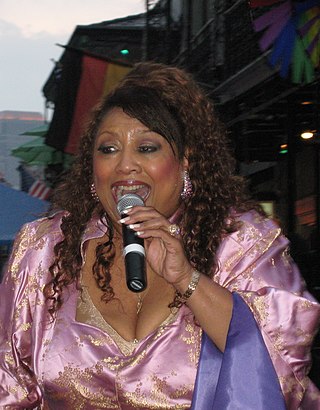
Jeanie Tracy is an American singer-songwriter, actress, and record producer. She rose to fame in the late 1970s as a background singer of Sylvester, an American disco singer. Her first album, Me and You (1982), featured post-disco hits "I'm Your Jeanie","Sing Your Own Song" and the overlooked 1983 smash R&B and Funk hit,"Can I Come Over And Play With You Tonight". From late 1984 to early 1985, she performed on television Show Star Search where she was the winner in the Female Vocalist category for six weeks. In 1995, Tracy released her second album It's My Time.

Sarah Dash was an American singer. She first appeared on the music scene as a member of Patti LaBelle & The Bluebelles. Dash was later a member of Labelle, and worked as a singer, session musician, and sidewoman for The Rolling Stones, and Keith Richards.
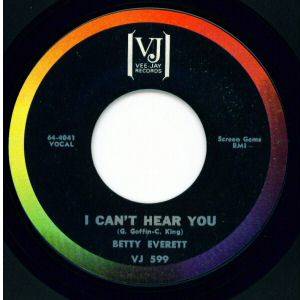
"I Can't Hear You No More" is a composition written by Gerry Goffin and Carole King. It was originally recorded as "I Can't Hear You" in 1964 by Betty Everett. The most successful version was the 1976 top 40 single by Helen Reddy.
Sundray Tucker is an American singer. She is the eldest daughter of the late Ira Tucker and Louise Tucker. Her sister is Lynda Laurence, once a member of the Supremes, and her brother is Ira Tucker Jr.
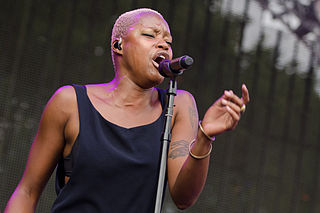
Noelle Scaggs is an American musician and singer-songwriter from Los Angeles, known as the co-lead singer of the pop group Fitz and the Tantrums. Scaggs has also had numerous collaborations with the Black Eyed Peas, Dilated Peoples, Quantic, Mayer Hawthorne, and Damian Marley.
Táta Vega is an American vocalist, whose career spans theater, film, and a variety of musical genres.
Taana Gardner is an American disco and post-disco singer who found her success through West End Records since 1979. She is also a former member of the Aural Exciters.
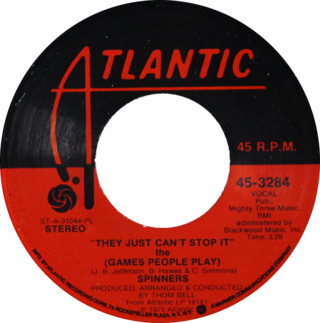
"Games People Play", also known as ""They Just Can't Stop It" The ", is a song recorded by American R&B vocal group The Spinners. Released in 1975 from their Pick of the Litter album, featuring lead vocals by Bobby Smith, it was a crossover success, spending a week at number one on the US Hot Soul Singles chart and peaking at number five on the Billboard Hot 100. Recorded at Philadelphia's Sigma Sound Studios, the house band MFSB provided the backing.
Barbara Jane Ingram was an American R&B singer and songwriter who was active throughout the early 1970s until the mid-late 1980s, enjoying modest success as a backup singer for almost two decades.

The Jackson 5, later the Jacksons, is an American pop band composed of members of the Jackson family. The group was founded in 1964 in Gary, Indiana, and for most of their career consisted of brothers Jackie, Tito, Jermaine, Marlon and Michael. They were managed by their father Joe Jackson. The group were among the first African American performers to attain a crossover following.
The Sweethearts of Sigma, sometimes known simply as The Sweethearts or The Sweeties, were an American female vocal trio comprising Carla Benson, Evette Benton and Barbara Ingram. Primarily backing vocalists, they were heard on many recordings made in Philadelphia, especially in the 1970s.
New York Post article "Backing Up is Hard to Do" by Jan Hoffman, 1988